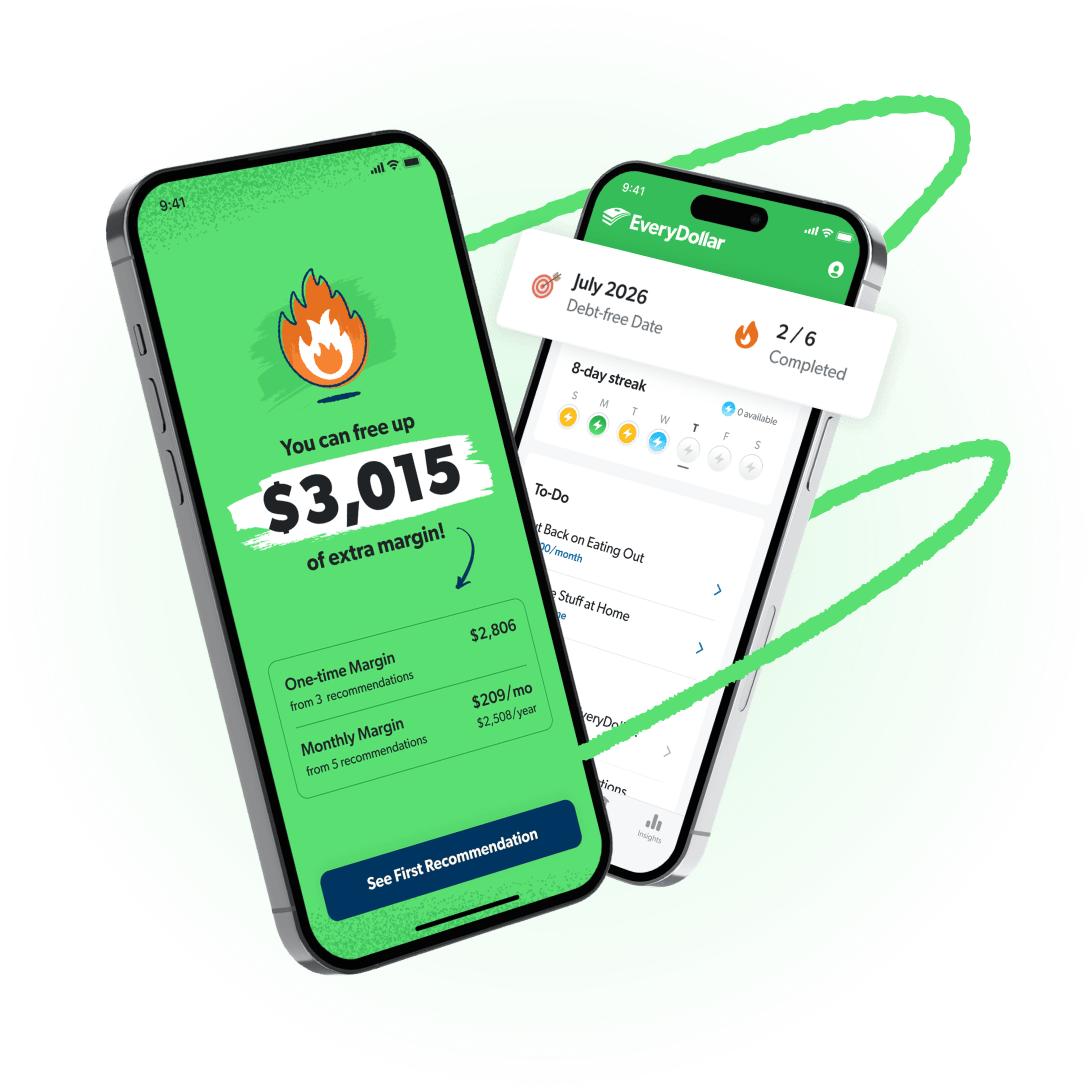Key Takeaways
- Smart financial planning is the key to avoiding student loans. Creating a budget, filling out the FAFSA, and focusing on affordable school options are foundational steps to paying for college without debt.
- Free money should be your top priority. Maximize scholarships and grants, as they don’t need to be repaid—and can often cover a large chunk of tuition and fees (or even give you a full ride).
- Start early by earning credits and saving up before college. Taking AP or dual enrollment classes and saving through accounts like 529 plans can reduce overall college costs.
- Cut everyday costs and work when possible. Living off campus, getting a roommate, working part-time, and being smart about food and supplies can all make college much more affordable.
Figuring out how to pay for college can feel a bit like staring up at a mountain. After all, it’s expensive no matter which school you choose. And that sky-high cost makes lots of families feel like taking out a boatload of student loans is the only way to afford it.
Get expert money advice to reach your money goals faster!
But we have some good news: As long as you make smart choices, paying for college doesn’t have to mean giving up your future paychecks to debt! And no, you don’t need to eat ramen every night or skip all the fun parts of college. You just need to focus on what really matters and find ways to save where you can.
If you make a solid plan and stick to it, you’ll crush the steep price tag of college without crushing your finances. Here’s a look at 10 of the best tips for making that happen.
10 Ways to Pay for College
1. Get on a budget.
You may not think budgeting can make that big of a difference, but it really is the starting point for paying cash for college.
When you don’t make a plan for how you’ll spend your money before the month begins—and don’t track your spending throughout the month—things get chaotic super quickly. After all, if you don’t tell your money where to go, you’ll wind up wondering where it went.
On the other hand, making and sticking to a budget every month gives you control. It keeps you from making mindless Amazon orders and impulse Taco Bell runs—which can add up quickly if you aren’t paying much attention to your money.
So, if you’ve never made a budget before, change that today! You can’t take full advantage of all these other tips without a budget.
Free Up Margin. Make Real Progress.
The EveryDollar budget app helps you find hidden margin and put it to work so you can stack savings, crush debt, and build wealth that lasts.
2. Fill out the FAFSA.
Filling out the Free Application for Federal Student Aid (or FAFSA) is a must if you want to pay for college without student loans. This is the form schools use to figure out how much money they can offer you, plus what kinds of aid you qualify for. No FAFSA means no grants or merit-based scholarships.
A few facts to know:
- The FAFSA is a form you or your parents must complete each school year.
- The types of aid it covers include federal grants, work-study programs, state aid and school aid. (It also covers loans, which are a terrible idea.)
- There’s no income cutoff to be eligible for financial aid, so you never know how much you could get until you send your FAFSA in.
- The FAFSA does have a deadline that can vary by state and school, so look at the official FAFSA website to see when the form needs to be submitted.
Depending on your financial need and the schools you consider, you may be able to cover your education entirely through grants and aid from your state or school. (We’ll talk more about grants and scholarships later.)
For now, just remember that all financial aid is awarded only to students who fill out their FAFSA.
3. Choose an affordable school.
If you were to ask friends or neighbors the most important factor in choosing a school, you’d get all kinds of answers—like the student culture, the size of the dorms, or even the success of the football team. But here’s the truth: When it comes to choosing a school or college visits, you need to focus on affordability above all else.
At the end of the day, your top priority should be to find a school you can afford. This might mean adjusting your expectations about going to a certain “dream school.” Because graduating with piles of debt is not a dream—it’s a nightmare.
When it comes to four-year schools, in-state public colleges are almost always the most affordable option. You may be able to save even more money by attending a “directional” school, which is a regional public university typically named after its geographic location within the state (think schools like Southern Illinois University or Georgia Southern University).
And keep in mind that the traditional approach to college, where you move away to live on campus for four years, isn’t the only way to get an education. Trade schools and community colleges are great options for plenty of students. (You can even start out at community college before transferring to a four-year school.)
4. Apply for scholarships.
Scholarships are the most powerful tools for covering school without loans because you never have to pay them back. It’s free money!
Here are some tips for getting the most out of scholarships:
- Treat the scholarship search like a job. Going to school debt-free is serious business, and the paychecks show up in the form of award letters from scholarship committees. Spend several hours a day on summer breaks and weekends searching for and filling out every scholarship opportunity you can find.
- The internet is your friend here. Don’t be afraid of doing frequent searches—new scholarships and deadlines are being set up all the time.
- Be prepared to write some essays about your personal experiences and career goals.
- Look into whether your parents’ workplaces offer scholarships for the children of employees.
- Get in touch with local community groups, businesses and charities to find out if you can apply for their scholarships. These are often awarded on the basis of community service or high school GPA.
5. Take advantage of grants.
Once again, we’re talking about free money you don’t have to pay back—which is the only kind of aid you want. Grants are awarded by schools, organizations and federal assistance programs based on your financial need. Once you’ve completed your FAFSA, you’ll learn about the federal grants you’re up for.
6. Earn college credits in high school.
Taking Advanced Placement (AP) classes as a high schooler lets you get a head start on earning college credit. And since you likely won’t pay more than $100 to take an AP exam, this can make a huge difference in the cost of attending college.
Dual enrollment classes, which let you enroll in college courses while you’re still in high school, can also give you a head start on college coursework. Like AP classes, dual enrollment often comes with a significantly reduced cost—or even no cost. You’ll simultaneously earn both high school and college credit for the same class.
If your school offers either of these programs and you qualify, take advantage!
7. Save money ahead of time.
If you’re reading this as a current college student, then it’s unfortunately too late to tackle this one. (Don’t worry, you can still avoid student loans by following the other tips.) But if you haven’t started college yet, then it’s time to start piling up some cash.
Whether you start investing for college by opening a 529 plan or Education Savings Account (ESA), or you simply start setting money aside in a savings account—every little bit helps.
8. Cut your food and supply costs.
Tuition isn’t the only cost you need to think about cutting as a college student. You can also control the amount you spend each semester on food and class supplies.
Think about it: If you go through college eating at restaurants every single night, you’ll wind up wasting loads of cash on food—especially if you’re already required to purchase a meal plan. So, instead of going out, milk that meal plan for all it’s worth and eat at home whenever you’re tired of the cafeteria.
And while it may be convenient to order all your books brand new from the campus bookstore, you could save hundreds of dollars by shopping around online and getting used books from places like eBay, Amazon and Chegg (just make sure you have the right edition).
9. Work during college.
There’s a great place for young people to go when they need money—to work! You might think getting a job will steal too much of your studying time, but tons of working students excel in college each year. Plus, you’ll hone some valuable life skills like time management and work ethic.
If you’re looking for a place to start, here are some good options for students looking to work while in school:
- Work-study programs: These allow you to work part time while attending school. You’ll find out if you’re eligible in your FAFSA letter. Work-study jobs are usually (but not always) on campus, which makes them a convenient way to combine work with schoolwork.
- Off-campus jobs: You can make a lot of money waiting tables, parking cars, or working at the mall. Or consider looking for a part-time office position that might be more in line with your career goals.
- Side businesses: There’s no limit to the number of ways you can earn money if you have a valuable skill, hobby or artistic knack you can turn into a marketable product. Think about crafts, clothing design, music lessons and tutoring.
10. Limit housing expenses.
Aside from tuition, housing is the priciest part of going to college. Luckily, you can cut that cost in several ways.
- Live off campus. College dorms aren’t always the most affordable option. Do some research to see if you could save some money by renting a house or apartment off campus. Bonus: You’ll get to have a full-size refrigerator!
- Commute. If your family lives within a reasonable driving distance of your school and they’re willing to let you crash at home for a few more years, there’s no reason to pay thousands of dollars for housing.
- Get a roommate. This one is huge. When you split your housing costs with a roommate (or multiple roommates), you wind up with a major discount.
Moral of the story? Don’t just look at the amount your school charges to live in a dorm and assume that’s what you have to pay. You may be able to lower that price tag.
You Can Go to College Debt-Free!
At the end of the day, just remember that every little effort now sets you up for a debt-free future. And a degree without loans means more freedom to chase your dreams later. So, start planning, stay focused, and crush those college costs.
And the EveryDollar budget app can help you free up thousands in margin—money you didn’t even know you had—and give you a custom plan to put it to work on crushing debt, stacking savings, and building wealth that actually lasts.
Download EveryDollar for free today and finally make the progress you’ve wanted all along.





